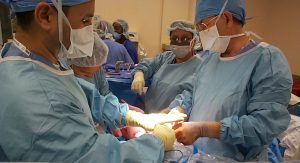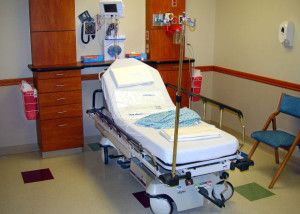A subsidiary of product manufacturing behemoth Johnson & Johnson is facing a product liability lawsuit for allegedly selling defective breast implants to unsuspecting women, causing them to suffer health woes such as muscle pain and nausea. The defective implants are reportedly made of a silicone base, and leakage has resulted in a host of problems for patients. 
Bloomberg reports the subsidiary, Mentor Worldwide, is accused of negligence for its alleged failure to carry out proper studies of its implants. In particular, plaintiff alleges the company refused to explore potential health risks, as it was required by federal regulation agencies to do. The lawsuit, filed in a state court in California, alleges that leaks occur as a result of normal use, and the silicone in the products cause serious injury when it seeps out of the device and into the body.
You may recall that the U.S. Food & Drug Administration had forbidden any companies from selling silicone-based breast implants for nearly 15 years, beginning in 1992. The devices were shown to cause cancer and Rheumatoid arthritis. Initially, a $4 billion settlement was reached to cover all those claims, but that deal eventually fell apart and several firms filed for bankruptcy. The blanket ban on breast implants was lifted in 2006 and today, there are still only three companies – Mentor Worldwide included – that are permitted to sell silicone-based breast implants. Last year, the total market for breast implants nationally topped nearly $640 million. According to the American Society of Plastic Surgeons, about 8 in 10 women undergoing breast implant procedure choose to have the silicone-based product. Continue reading

 Product Liability Lawyer Blog
Product Liability Lawyer Blog




